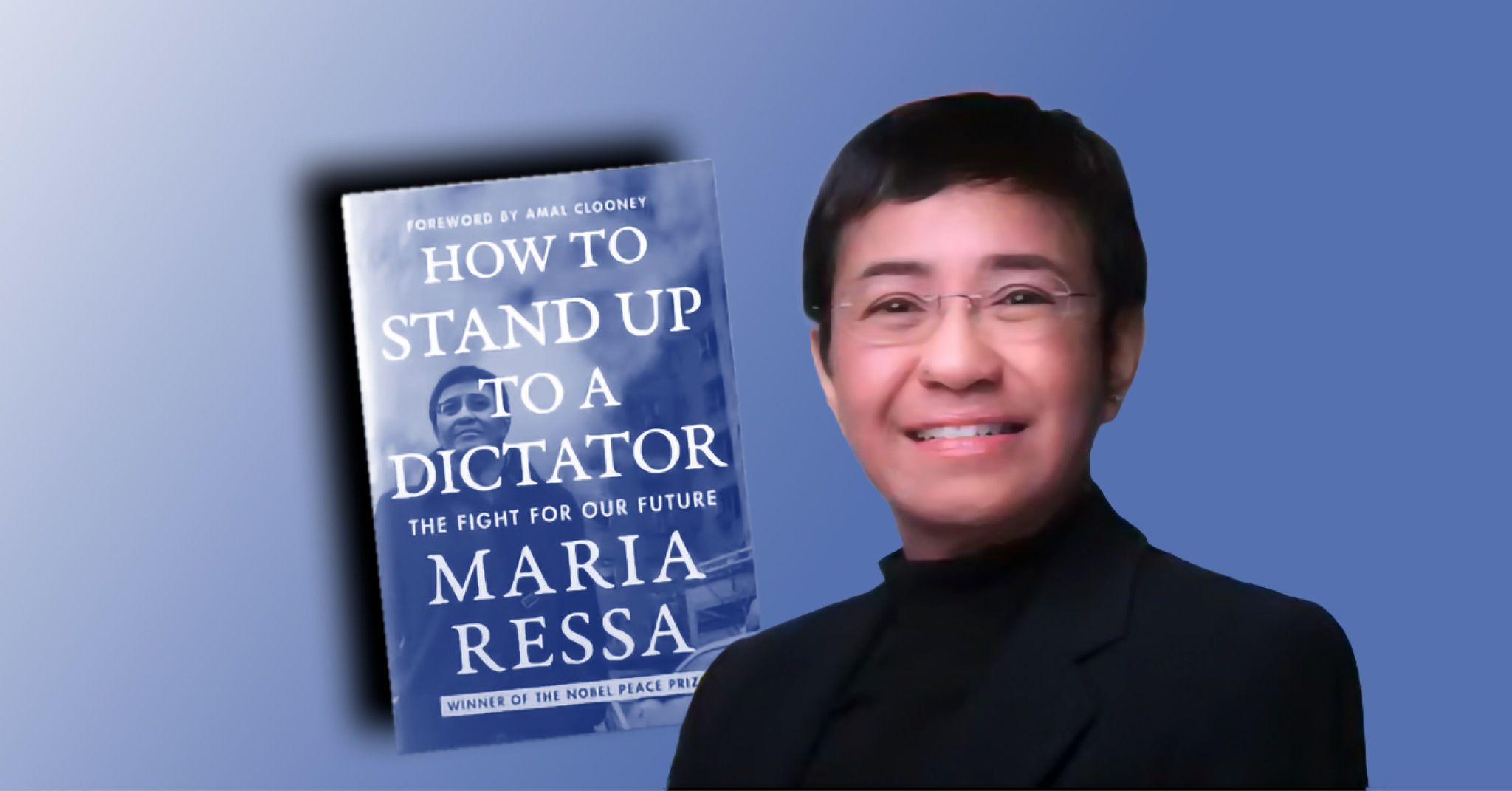The Rappler CEO, PeopleAsia People of the Year 2022 awardee and Nobel Peace Prize winner released her new book, How to Stand Up to a Dictator, which chronicles her life and career as a journalist and what she has learned so far in her fight to uphold the truth against a backdrop of lies, harassment and disinformation.
Everyone knows the story of David and Goliath – the biblical tale of the young but brave shepherd confronting and eventually killing a taunting giant much larger and stronger than him with only his faith, strong will and a slingshot.
Journalist Maria Ressa knows this too well. The Rappler CEO and former PeopleAsia People of the Year 2022 awardee has had her fair share of fighting a number of Goliaths in a long, storied career in the media. Goliaths in the form of endless harassments, lawsuits, online bullying, disinformation and even unlawful arrests by the powers that be through their army of supporters. For upholding the truth and holding the line, Ressa won the 2021 Nobel Peace Prize.
Proving that a storyteller will always be a storyteller, Ressa wrote about her more recent experiences as a journalist practicing in the Philippines and the valuable lessons and insights she drew from them in her new book, How to Stand Up to a Dictator: The Fight for Our Future.
Unlike her first two books, Seeds of Terror: An Eyewitness Account of Al-Qaeda’s Newest Center and From Bin Laden to Facebook: 10 Days of Abduction, 10 Years of Terrorism, both of which told the spread of the terrorist group Al-Qaeda’s influence inside Southeast Asia, Ressa took on a different approach in narrating various instances she experienced privately and in public in her new book, which, she says, doubles as a memoir.
With her arrest on Feb. 14, 2019 over a cyberlibel charge filed against her by businessman William Keng, the attacks against her had reached a new level. Ressa believes that they have “become personal.”
The said cyberlibel charge stemmed from a Rappler article in 2012 detailing Keng’s involvement with then Chief Justice Renato Corona, stating that a black Chevrolet Suburban registered under the businessman’s name was the vehicle Corona used to travel to and from Senate during his impeachment.
The article also revealed that Keng was “under surveillance” by the National Security Council for allegedly taking part in a number of illegal activities, including human trafficking and drug smuggling. Keng denied these allegations.
“I moved from being a journalist to a citizen. I don’t deserve to be treated like this,” the journalist recalled during her recent book launch, which coincided with World Human Rights Day.

Her arrests and the events the led up to it became a catalyst that pushed her to take a personal tone in writing the book. “I want to step back so we can tell the story, but what happens when you become the story,” she asked. “When you become the story, you cannot shy away from it.”
How to Stand Up to a Dictator also tells its readers to be vigilant against disinformation, something that has become more rampant and sinister these days because of the advent of social media. The book reveals how certain sites and platforms, including Facebook, have become a conduit for spreading “lies with anger and hate.” It endeavors to untangle a web of cause and effect that has polarized public discourse and poisoned the world’s political atmosphere.
“Impunity online naturally led to impunity offline, destroying existing checks and balances,” Ressa wrote in the book’s prologue. “What I have witnessed and documented over the past decade is technology’s godlike power to infect each of us with a virus of lies, pitting us against one another, igniting, even creating, our fears, anger, and hatred, and accelerating the rise of authoritarians and dictators around the world.”
But above everything else, How to Stand Up to a Dictator is an “ode to journalism.” It is a letter from Ressa to those willing to sacrifice for the truth and “hold the line.”
When asked what young journalists could pick up while reading the book, Ressa said that it challenges them to rebuild a reputation that was destroyed in the past, especially since they are part of a system that encourages “bad journalism.” “You must ally with good journalists who can create and collaborate,” she advised. — Reggie Abang






